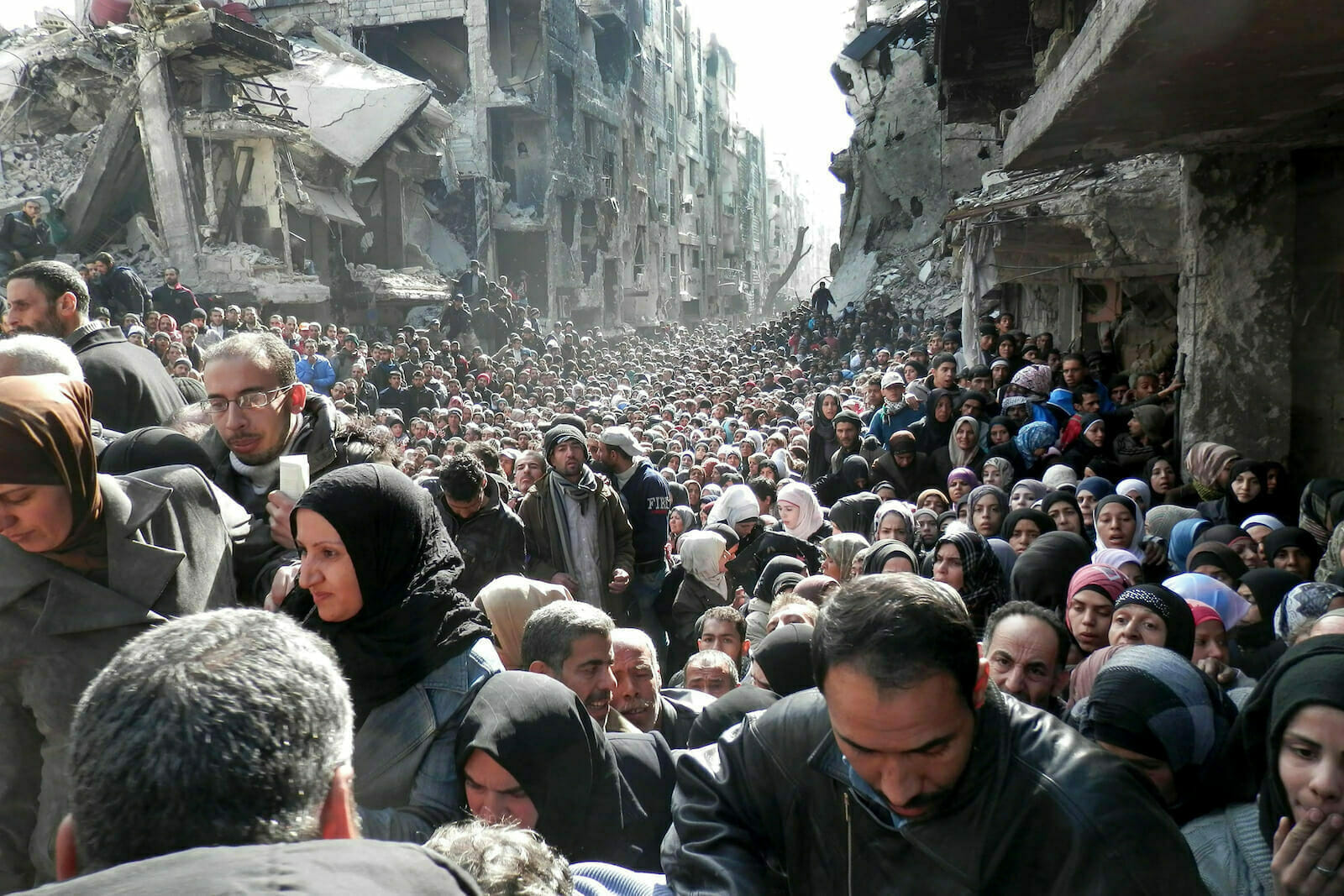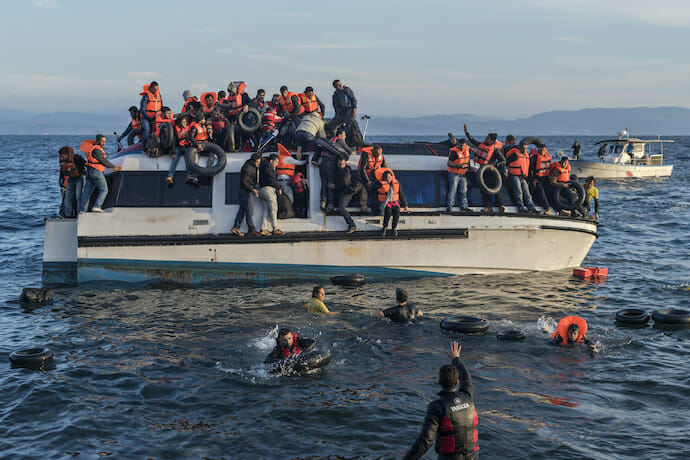
It’s Time to Recognize Climate Refugees
Through a flurry of executive action and appointments in his first 100 days, President Biden is restoring U.S. leadership on both climate change and refugee resettlement. Addressing climate change today will save lives, property, and money in the long run. And accepting more refugees will enhance America’s moral leadership while reinvigorating American communities with new, hardworking members. President Biden should go further: He should recognize that climate change is driving the need for refugee resettlement.
Today, the law defines refugees as those who flee their home country because of persecution of their religion, race, ethnicity, or politics. The reality is that refugees are also fleeing climate change. The World Bank estimates that over 140 million climate migrants will be displaced by 2050. That estimate dwarfs the number of Central American migrants who are overwhelming the asylum system at our Southern border today.
In the face of warmer temperatures, reduced precipitation, and blighted crops—struggling farmers from Guatemala and El Salvador are giving up and fleeing to the U.S. border. As the effects of climate change increase later this century, this pattern of migration will accelerate. The Biden administration should adopt a legal definition that protects these climate refugees.
Climate change will submerge American communities like Isle de Jean Charles, Louisiana, and entire countries like the Maldives. Some areas of the earth will no longer be safe for year-round human habitation. Those who flee surely should qualify as “climate refugees.”
The climate crisis and the migrant crisis are also interconnected. When hundreds of thousands of Syrian refugees fled to Europe, the world looked to the revolution and civil war as its cause. Yet droughts in the years leading up to the Arab Spring diminished grain harvests and drove up food prices, fueling social tensions ahead of the revolution.

In Africa, warmer average temperatures and a growing population are drying up Lake Chad, destroying crops and livelihoods in Niger, Chad, Cameroon, and Nigeria. It is no coincidence that extremist groups like Boko Haram in Nigeria have come to power at the same time. Under the current system, rural farmers are not eligible for refugee status if desertification destroys their crops and animals. However, if we wait for climate consequences to fester and those same farmers become victims of Boko Haram—then they could become eligible for refugee status. Adopting a legal definition and protections for climate refugees will provide a steam valve for communities where climate change is increasing competition for dwindling resources.
The pathway to recognizing climate refugees is clear. A February 4th Executive Order from President Biden mandates “a report on climate change and its impact on migration, including forced migration, internal displacement, and planned relocation.” Due in July, this report should recommend that the U.S. create a legal definition for climate refugees and work with Congress to launch a climate refugee program. Senator Ed Markey of Massachusetts, a leader on climate issues, has already drafted such legislation and introduced the bill in 2019 (S. 2565).
The U.S. should also press other nations to recognize climate refugees. November’s United Nations Climate Conference in Glasgow presents the high-profile stage to do so. Climate Czar John Kerry and Secretary of State Antony Blinken should work to include climate refugees on the agenda.
Some say this policy would erase our borders and flood the United States with migrants, overwhelming our social services. Such critiques reek of racist anxieties and ignore the long history of bipartisan support for refugee resettlement. Refugee resettlement has boosted American leadership, fostered economic dynamism, and enhanced our national security. And a climate refugee program will still be within the president’s annual cap on refugee admittance. Codifying a definition for climate refugees will simply allow the United States to accept a broader group of worthy candidates.
To live up to our highest ideals, the United States must recognize climate refugees. These are the world’s neediest people. They are today’s tired, poor, and huddled masses yearning to breathe free. As the seas rise, what could be more American than welcoming these worthy individuals to our shores?

